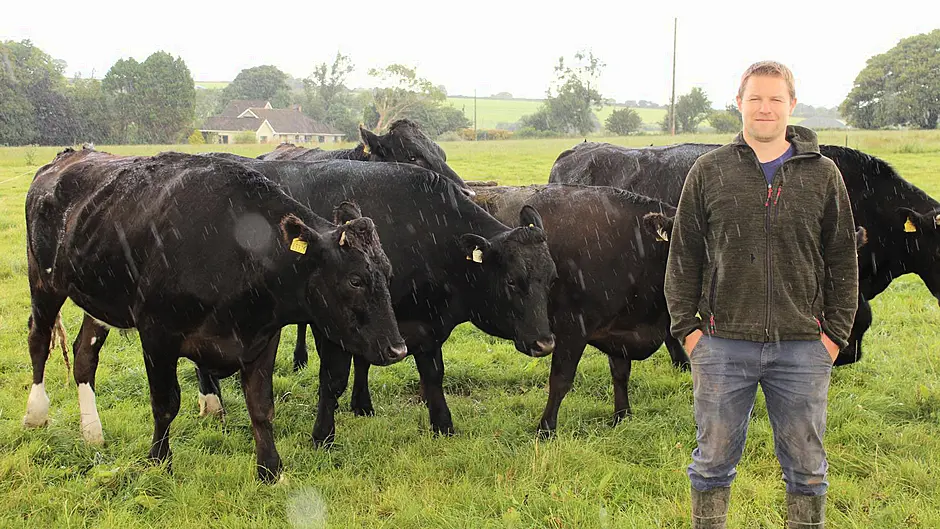Daryl Good and his family farm with his father Jim, outside Aherla in the townland of Curragh. Historically, Jim had a purebred Limousin and Belgian Blue herd with some tillage. Jim was back and forth from France in his younger years, and visited a lot of Limousin farms in France before establishing his own Limousin herd.
BY JOHN HUMPHREYS
Around 2004, the Goods used a number of Wagyu AI straws on a few purebred cows and sold the progeny to their local butcher, Michael Twomey. The idea was born, and the purebred Belgian Blues were phased out and the Wagyu beef group was born. Wagyu beef has a rich flavour and tenderness that was ideal for a niche market. The intensely marbled meat gives a melt-in-the-mouth experience for the consumer. The monounsaturated fats also have beneficial effects on cholesterol levels in humans.
Wagyu cattle are originally from Japan, and initially were used for farm work but were bred to improve beef quality. Australia has a large number of Wagyu cattle fattened for the Japanese market and in Japan, Wagyu cattle are considered a national treasure. Originally some crossbred Wagyu cattle were sourced in Ireland and fattened, but it was clear a more permanent strategy had to be put in place.
Wagyu AI straws were imported mainly from Australia and distributed to local dairy farmers. Calves were then reared by the group for sale by Michael Twomey butchers, who say themselves that their West Cork Wagyu beef is ‘produced by an enthusiastic group of local farmers. We are working together in partnership to produce the tastiest, healthiest beef we can, and we hope you enjoy it’.
Alongside Jim’s beloved Limousins, the Goods take in 120 Wagyu calves every year and finish them for the group. Calves are collected from local dairy farmers and brought to the farm in groups of 10. There is a set price for the Wagyu calf determined by the Wagyu group. Daryl puts great emphasis on correct rumen development in the calves as this will determine the weight gain and health of the animal. A poor thriving Wagyu will never meet the marbling standards set by the group.
The marbling effect and its importance cannot be underestimated. A marbling score is given to each carcase and the better the marbling, the higher the price. The selection of the imported AI straws is crucial for this. The Wagyu cattle have a conversion rate on par with Friesians and finishing the Wagyu to the correct fat score is essential.
Along with excellent grassland management, soil fertility has a big focus on the Good farm. Good quality silage with the incorporation of clover has a big part to play in improving the diet of the Wagyu steers and heifers. Concentrates are fed for a minimum of 100 days before slaughter ,which is necessary for the desired marbling effect.
In 2024 Daryl invested in a JFC automatic calf feeder which reduced the workload in the spring. Daryl is happy with his investment and would expand more, only the farm stocking rate is managed under nitrates stocking rate limits.
Being a beef farmer in derogation, Daryl is keeping a close eye on negotiations on the nitrates derogation. Hopefully the current situation will be resolved, and Ireland can maintain its derogation status, which is vital for maintaining Daryl’s farm income.
Daryl has been welding all his life, and when he has time makes and sells a few mobile calf troughs with hay and straw racks attached. The calf troughs are made on wheels and can be easily moved from paddock to paddock.
John Humphreys is a B&T Drystock Advisor in the Teagasc Advisory Office, Clonakilty.








